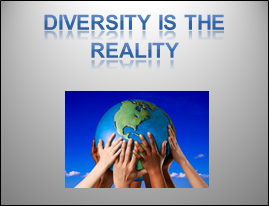What Does Society Want 
Boards are an avenue to ensure that diversity is recognized and honored in many areas of society. In the past, ethnic groups were often concentrated in specific nations, provinces or locales but this is not the current reality. Therefore, it is vital for the rule of law and human rights protection to be firmly engrained in board policies and practices. This would ensure that individual rights are protected, bullying and shunning are minimized, and the voices of all people are heard prior to decisions being made.
Two Conditions That Need to Exist
All individuals with a vested moral or legal interest in the outcomes the board achieves need to have the confidence that the board’s policies and practices are aimed to respect their human rights.
The board has to have the confidence that diverse individuals and groups desire to respect the rights of others. This means they understand why the board has to make difficult choices based on human resources, finances, geographical realities, its mandate, and its legal parameters.
Beliefs
Board members’ beliefs about accommodation may vary. Some may think that it is important to define the board’s reality and accommodate the needs of those they represent. This means that there is no one reality for people from similar backgrounds, ages, etc.
Others may believe that identities are malleable and fluid, changing with time, circumstances and education. Therefore, one role of the board is to define what is acceptable and feasible for those it represents.
How the needs and fears of diverse individuals are accommodated depends on the definition of accommodation the board chooses as the foundation for its formal and informal policies and practices.
Does the board want gentle integration of all individuals, or does it want differences honored and celebrated? It is essential for the board to believe that accommodation does not lead to instability of the system, unfairness or injustice.
What Does This Mean for the Board
If individuals and groups consider they are different from the majority, they want to be accommodated. The majority may rather provide mechanisms for them to be integrated into the larger society.
As a result, conflict will occur. This is normal and should be welcomed. Through dialogue and conflict resolution processes, understanding of needs increases, the impact of policies becomes understood, and common concerns are realized.
This information is vital for the board as it focuses on positioning itself for the future and establishing strategic directions essential to achieving its mandate.
Ways a Board can Honor Diversity
There are at least four ways to honor diversity.
First, it could use a quota system to choose individuals who represent, gender, age, culture, etc. on the board.
Second, it could ensure that board members bring the opinions of diverse groups and individuals to the table prior to decisions being made.
Third, it could ensure all policies engender respect, honor differences, and lay the foundation for acceptance of each person as he is.
Fourth, it could decide to share power and enable groups or individuals to make choices where feasible.
Diversity is the Reality
Diversity is the current reality. Boards can determine their responsiveness to the needs of diverse individuals and groups when it does its self-assessment and during its consultative process with stakeholders.

